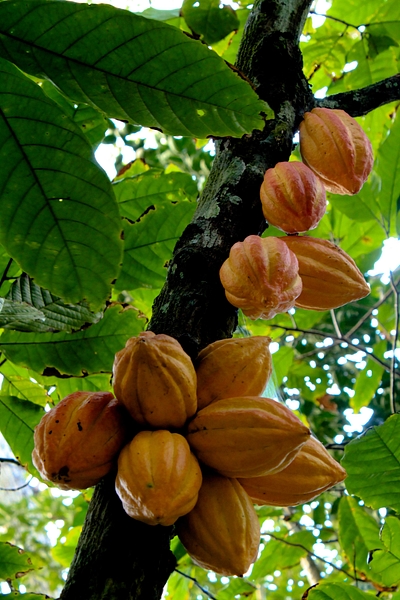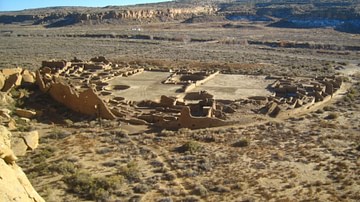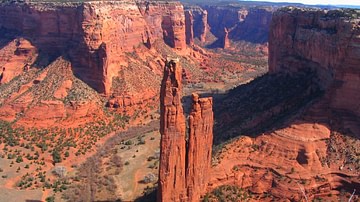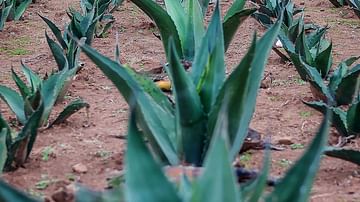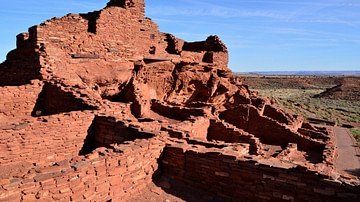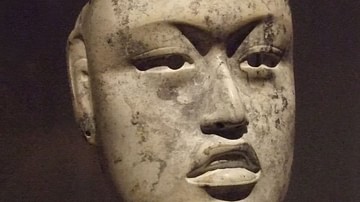
Chocolate was one of the most desired foods of Mesoamerica and was consumed by the Olmec, Maya, and Aztec civilizations, amongst others. Its consumption even spread via trade routes to other parts of the Americas including the Chaco Canyon in modern New Mexico. The earliest known use of chocolate was by the Olmec around 1900 BCE and, enjoyed as a drink, it was drunk from special round jars known as tecomates. The Maya used tall cylinder beakers for drinking chocolate, and these very often had text on the rim indicating their intended use. The Aztecs also had richly decorated tall cups specifically reserved for chocolate drinks. It may be that such conspicuous vessels were designed to impress onlookers that the drinker had the means and status to enjoy such a prized drink.
Cultivation & Value
Chocolate is made from the beans of cacao pods from the Theobroma cacao tree (actually native to South America) which was first cultivated in extensive orchards near the Pacific and Gulf coasts of Central America, especially in the Xoconusco region and the valleys of the Sarstoon, Polochic, and Motagua Rivers (modern Guatemala and Belize), where the tree thrives in the warm and humid climate. There were, in fact, four varieties of cacao bean or cacahuatl, as the Aztecs knew them, and the corruption of this word or their term for the chocolate drink - xocolatl - is probably the origin of the word chocolate.
So esteemed was chocolate that beans were a commonly traded item, very often demanded as tribute from subject tribes and even used as a form of currency by the Aztecs. In fact, cacao beans were so valuable that they were even counterfeited either to pass as currency or, even more fiendishly, hollowed out of their valuable interior and refilled with a substitute such as sand. As a currency, we know that in the Aztec markets one cacao bean could buy you a single tomato, 30 beans got you a rabbit and, for the more ambitious shopper, a turkey could be had for 200 beans.
As an expensive import then, chocolate was drunk mainly by the upper classes and consumed after meals, typically accompanied by the smoking of tobacco. It may have been enjoyed mixed with maize gruel by the poorer classes at important events such as weddings, but some scholars maintain that the pure chocolate drink was an exclusive status symbol of the nobility. Curiously, it could even be given to favoured sacrificial victims as a final treat before they departed this world, for example, at the annual Aztec festival of Panquetzaliztli held in honour of Huitzilopochtli.
Preparation & Consumption
To prepare the chocolate, cacao beans were fermented, cured, and roasted. Then the beans were ground into powder and mixed with hot water, as chocolate was usually (but not always) consumed as a warm frothy drink, the froth made by vigorously whisking the liquid with a wooden implement and pouring the liquid from one vessel to another. Indeed, the froth was considered the best part of the drink. Bitter to taste, it could be flavoured by adding, for example, maize, vanilla, flowers, ground chile peppers, herbs, honey, or fermented agave sap (octli). Apart from the taste, another advantage of chocolate is that it also contains caffeine and so can act as a stimulant.
Bernardino de Sahagún wrote a vivid eyewitness account of how chocolate was prepared by the Aztecs and how to tell a good quality drink from an inferior one:
The seller of fine chocolate [is] one who grinds, who provides people with drink, with repasts. She grinds cacao [beans]; she crushes, breaks, pulverizes them. She chooses, selects, separates them. She drenches, soaks, steeps them. She adds water sparingly, conservatively; aerates it, filters it, strains it, pours it back and forth, aerates it; she makes it form a head, makes it foam; she removes the head, makes it form a head, makes it foam...She sells good, superior, potable [chocolate]: the privilege, the drink of nobles, of rulers - finely ground, soft, foamy, reddish, bitter; [with] chile water, with flowers, with uei nacaztli, with teonacaztli, with vanilla, with mecaxochitl, with wild bee honey, with powdered aromatic flowers. [Inferior chocolate has] maize flour and water; lime water; [it is] pale; the [froth] bubbles burst. (Townsend, 178)
